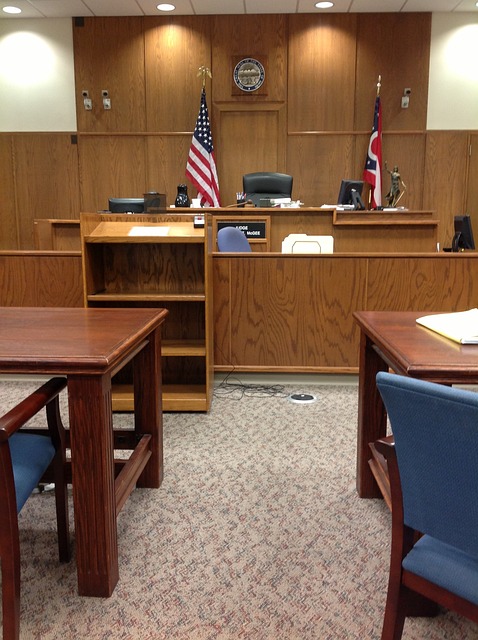
More Tenth-Anniversary FPLG Blog Favorites
10.24.2024 | Linda J. Rosenthal, JD

Last week, we wrote about the California Supreme Court strengthening the opportunities for whistleblowing nonprofit directors to sue fellow board members for breaches of fiduciary duty. See Forced-Out California Nonprofit Directors Don’t Lose Standing to Sue (August 3, 2023) FPLG Blog, discussing Turner v. Victoria (August 3, 2023, 4th Dist, Div. 1 [San Diego]).
Today, we’re highlighting another unanimous high court ruling that has reopened a door for certain California nonprofits to successfully assert standing to sue. This time it’s under the state’s unfair competition law (UCL); more particularly, the Unfair Business Practices Act (CA Business & Professions Code section 17204). See California Medical Association v. Aetna Health of California, Inc. (July 17, 2023, 2nd Dist, Div. 8 [Los Angeles]).
In both cases, the California Attorney General was among the amici curiae voicing critical support for the sole legal issue: reinstating the right to sue without getting tossed out at the initial stages of the litigation. The government took no position on the merits of either case; that will be thrashed out in later stages of these lawsuits.
The second situation takes a bit more explanation than the first.
It’s not difficult to understand that a dissenting nonprofit director may need a route to sue other board members for breach of fiduciary duty. But grasping how an “unfair competition law” can be twisted – legitimately – into an avenue for a nonprofit to enforce or advance its mission takes a bit more intellectual focus.
In 2009, Aetna decided to clamp down on doctors in its California PPO plans who the insurer asserted were granting too many out-of-network referral approvals.
The California Medical Association (CMA) is a 501(c)(6) nonprofit professional organization, founded in 1856, that “advocates on behalf of California physicians” and also works to “protect public health” through “‘legislative, legal, regulatory, economic, and social advocacy.’” CMA “has been especially active in advocacy and education on issues involving health insurance companies’ interference with the sound medical judgment of physicians providing care to enrollees.”
In deciding how best to challenge Aetna’s new “Network Intervention Policy,” the medical association eventually chose to proceed under California’s expansive Unfair Competition Law (UCL).
The UCL is a collection of statutes that prohibit “… false advertising and illegal business practices…. This Law describes ‘unfair competition’ as any unlawful, unfair, or fraudulent business act or practice, or false, deceptive, or misleading advertising.” It was drafted by the Legislature to have a “broad reach.”
But it’s provided opportunities as well for bad actors to sweep in and file “frivolous” lawsuits solely concocted to harass defendants into quick settlements. In 2004, “California voters approved a ballot initiative known as Proposition 64, which limited the private actors who may enforce the UCL to those who have “suffered an injury in fact” and “lost money or property as a result of” the challenged business practice. In other words, only plaintiffs who can meet this heightened level of standing may proceed under the UCL, and “businesses could no longer be targeted by someone who was not harmed as a result of the alleged misconduct.”
Ballot propositions are notorious for their bad drafting, often resulting in ambiguous and overbroad laws, which, themselves, must be litigated for years. That’s what happened here. This saga began in 2009-2010 when the CMA fully understood how damaging Aetna’s revised “Network Intervention Policy” is for its member-doctors and for their patients. Only when preliminary efforts to get Aetna to drop the new rules were unsuccessful, did CMA file this lawsuit in 2012, alleging an unfair business practice.
Aetna defended against this litigation, arguing that the California Medical Association does not have standing to sue under the 2004 ballot-initiative-approved heightened hurdles. It’s taken until mid-2023 for the case to be resolved by California’s highest court – not on the merits, but only on the threshold issue of standing.
As with the other recent ruling on standing – Turner v. Victoria – all seven high court justices in CMA v. Aetna unanimously voted to reverse the trial and appellate court decisions to deny plaintiff standing. In both cases, the lower courts had interpreted the standing rules tightly, although there were more liberal decisions in other appellate districts around the state. In both Turner and CMA, the Supreme Court justices explicitly accepted the looser standing-rules interpretations of the other districts – establishing them as precedent all around the state.
By the time in 2012 when the California Medical Association decided there was no alternative but to file suit against Aetna to force them to drop this policy damaging to the state’s doctors and their patients, it had already “diverted 200–250 hours of staff time” in various efforts to resolve the matter short of litigation.
To pursue a lawsuit under California’s unfair competition law, a plaintiff “must prove suffering and financial or property losses due to an unfair practice.” More particularly, the “… UCL confers standing on a private plaintiff to seek relief under the statute only if that plaintiff has ‘suffered injury in fact’ and ‘lost money or property as a result of the unfair competition’ at issue. (Bus. & Prof. Code, § 17204.)
“This case,” the seven California Supreme Court justices explain with their 7-0 vote, “presents the question whether an organization can satisfy these two related standing requirements by diverting its own resources to combat allegedly unfair competition.”
And here is the unequivocal answer in the affirmative: “We hold that the UCL’s standing requirements are satisfied when an organization, in furtherance of a bona fide, preexisting mission, incurs costs to respond to perceived unfair competition that threatens that mission, so long as those expenditures are independent of costs incurred in UCL litigation or preparations for such litigation.”
The justices said that the appellate court in Los Angeles had gotten the post-2004 UCL standing requirements wrong in a number of ways, including confusing and unnecessarily muddying the distinct standing interests of California Medical Association’s physician members with those of the organization itself.
The bottom line is the state Supreme Court cleared the way for a nonprofit organization – [whether it be a 501(c)(6) or a 501(c)(3) or other category and with or without members] – to establish standing to sue with the same type of evidentiary showing that CMA made. The 170-year-old California Medical Association was in no way a fly-by-night, newly established, group formed solely to harass defendant Aetna Health under California’s Unfair Competition Law. Nothing in the 2004 ballot initiative was designed to exclude this type of plaintiff with this type of lawsuit from UCL coverage.
So the Second Appellate District, Division Eight got the post-2004 standing rules wrong. Which appellate district got it right?
That was Northern California’s First District, Division Five, in Animal Legal Defense Fund (ALDA) v. LT Napa Partners LLC (2015). There, the Napa appellate justices explained how an animal rights organization had diligently worked to have the Legislature ban cruel force-feeding methods used in the production of foie gras, and to educate the public about it. See Health & Safety Code section 25982: “A product may not be sold in California if it is the result of force feeding a bird for the purpose of enlarging the bird’s liver beyond normal size.”
When one of the ban’s leading opponents, a prominent restaurateur, brazenly defied it on multiple occasions, and after all other efforts to get local authorities to shut down the illicit foie-gras-serving activities were unsuccessful, the Animal League Defense Fund sued for injunctive relief under the UCL.
The restaurant-owner defendant moved to strike plaintiff’s claim, using a different anti-harassment standing bar; that is, the California anti-SLAPP statute. The trial court ruled against the defendant, allowing the animal-rights group to continue its mission of stopping animal cruelty by suing to enforce the ban it had worked so diligently to have the Legislature enact. The appellate lawsuit agreed that ALDF had standing to sue under the UCL.
In California Medical Association’s lawsuit against Aetna Health, the Second District (incorrectly) distinguished the ALDF ruling and refused to follow it. The Supreme Court disagreed, aided by an easy-to-read and highly persuasive amicus-curiae brief filed by the Animal Legal Defense Fund itself.
For helpful explanations of this case, see – for instance: California Supreme Court Ruling Suggests Easier Opportunities to Create Organizational Standing Under the UCL (August 10, 2023) Gayle Jenkins, Esq., Winston & Strawn LLP and California Supreme Court Expands Ability of Public Interest and Non-Profit Trade Groups to Sue for Alleged Unfair Business Practices Under Section 17200 of The Business & Professions Code (July 28, 2023) Jeffrey Topor, Esq., Womble Bond Dickinson.
“As a result of this decision, the California Supreme Court has expanded access to the courts for non-profits, trade groups, and other advocacy-based organizations to challenge alleged unfair business practices based on their decision to reallocate resources in response to perceived threats to their mission.”
– Linda J. Rosenthal, J.D., FPLG Information & Research Director
